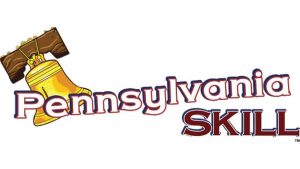For those who doubted it, the Keystone state finally has some tangible evidence that its planned gambling expansion is not a mere pipe dream. However, the progress does not begin with online poker or even sports betting but instead, the process has kicked off with a broad expansion of the PA lottery which is another beneficiary of the law that was passed in October 2017 – still online poker and sports betting are on the way. The state is the 18th one to offer keno through its lottery with a $27 million budget for the first-year profit.
The lottery has begun by rolling out comprehensive upgrades to its product in an effort to modernize the platform and thus make it more appealing to younger customers. The upgrades include a number of new games, innovative ways of playing the new games as well as a bunch of new venues where the games can be played. In fact, the first of these remoted lottery games, keno, was launched on Tuesday morning at 5.49 a.m.
From the statistics of the first drawing, it appears that the game is going to be quite popular – the lottery indicated that about 8,200 tickets were being sold every hour during the lunchtime rush.
If you are unfamiliar with it, keno is a popular electronic game that can be found in most, if not all, casinos all around the United States. In the game, the players get to choose up to 10 numbers from a grid of 80 squares after which a computer randomly draws 20 of its own numbers. Payouts for the game are based on the number spots a player matches with the games running every four minutes. Also, based on the 65 percent return on investment (ROI), the overall winning expectation of the lottery is a rough estimate of this ROI.
After its launch, keno will be offered at hundreds or more food, beverage and retail locations in various parts of the United States. As far as legal issues are concerned, the lottery is authorized to offer keno on both its online or electronic platforms and on its land-based platforms. Also, keno requires that a dedicated video monitor is installed on the sites it is offered and the lottery personally does the installation at any of the locations it wishes or is allowed to operate in order to make it easier for the hosts. As for compensation, the owners of any particular site where the lottery’s keno is offered receive a 5 percent commission on all the money that is wagered on the location.
In an interview with Pittsburgh Post-Gazette, Drew Svitko, the executive director of the lottery, confirmed that over 500 properties have already applied to offer keno. Svitko believes that the number of interested properties is bound to increase immensely in due time.
- Tags:






